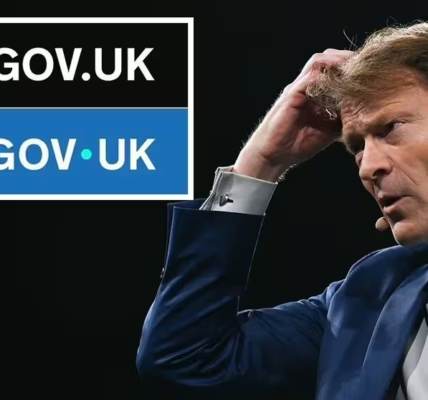
Keir Starmer doesn’t care about veterans (Image: PA)
Keir Starmer has begun his march toward digital ID control — and his first target is our veterans. Wrapped in the language of convenience and modernisation, this so-called “Digital Veteran Card” is nothing more than a trial run for Labour’s long-gestating plan to impose digital identification on every citizen in the country. It’s the same old Blairite dream, dusted off and rebranded for a new age of government intrusion. There is no mandate for this. It wasn’t in Labour’s manifesto. The British public have not been consulted, and when they are asked, they overwhelmingly reject it.
Yet here we are, watching Starmer’s government smuggle through a policy that takes us another step closer to a digital surveillance state — one card, one app, one database at a time. They tell us it’s “optional”, that it’s all about helping veterans access services. But the language of government is always the same when it comes to expanding state power — it begins with a “pilot scheme”, a “case study”, a “convenient solution”. Before long, it becomes the norm, and then it becomes mandatory. Once the infrastructure is built, the choice disappears.
This isn’t about helping veterans. It’s about testing the system — the first real-world deployment of a government-controlled digital ID. The Ministry of Defence data, the GOV.UK One Login app, and the verification network they’re building are not isolated pieces. They are components of a much larger machine.
We’ve seen this before. In the late 1990s, Tony Blair tried to push through national ID cards. He failed, because the British people saw it for what it was — an unacceptable intrusion into personal liberty.
Now, decades later, that same idea is back, creeping through the back door under the guise of technological progress. Do we really trust this government — any government — with more of our personal data?
This is the same state that can’t manage the border, can’t run the NHS, and can’t keep our streets safe. Yet we’re supposed to believe they’ll handle our digital identities with precision and care?
It’s delusional. Every database they create eventually leaks. Every “secure” system eventually fails. And when it does, it’s the citizens who pay the price.
The real danger here isn’t just data breaches — it’s control. Once digital ID becomes embedded, it will be linked to everything: health records, bank accounts, tax information, carbon tracking, even social behaviour. Today it’s a veteran’s discount.
Tomorrow it’s whether you qualify for a mortgage because your medical data shows high blood pressure. Next week, it’s whether you can fill up your car because you’ve exceeded your carbon quota.
This is how a free society drifts quietly into a managed one. You don’t wake up one morning in a dystopia — it happens bit by bit, policy by policy, app by app.
Starmer’s Britain is being built on this foundation of quiet coercion. Digital ID is the keystone in a system that puts the state at the centre of your life and you at its mercy. And let’s be honest — they are counting on compliance.
They know most people won’t object if it looks convenient. They know they can wrap control in the language of “efficiency”, “security”, and “progress”.
But we must resist it. Britain doesn’t need a government that knows more about us — it needs one that interferes less. We need smaller government, not digital government. We need freedom, not managed identity.
Our veterans deserve genuine support, not to be used as guinea pigs for a national experiment in digital control. This scheme must be opposed, exposed, and stopped before it becomes entrenched.
The question isn’t whether you have anything to hide. The question is why the government feels the need to watch. Once we hand them this power, we’ll never get it back.
That’s why the line must be drawn here — not tomorrow, not when it’s too late. If we let this pass, we’ll look back and wonder when the free Britain we knew quietly disappeared behind a screen.




